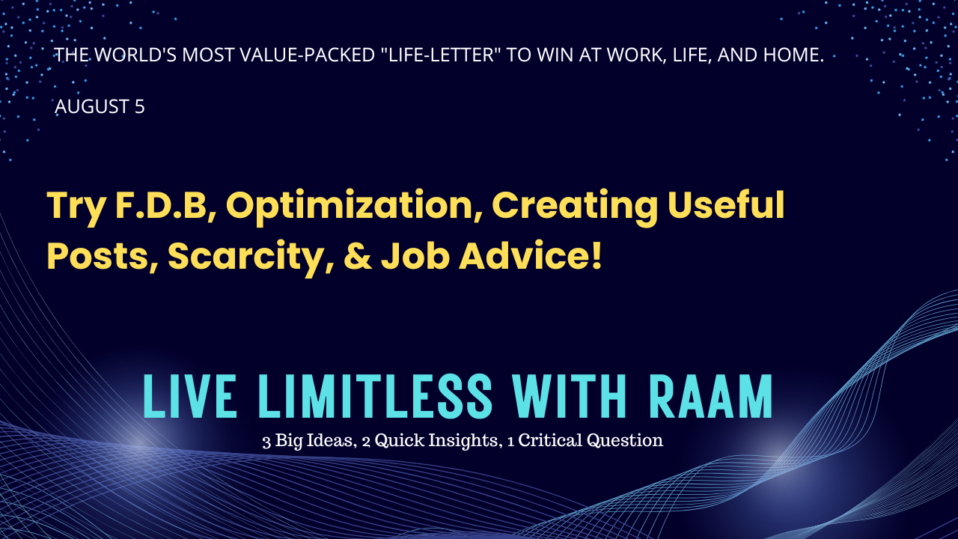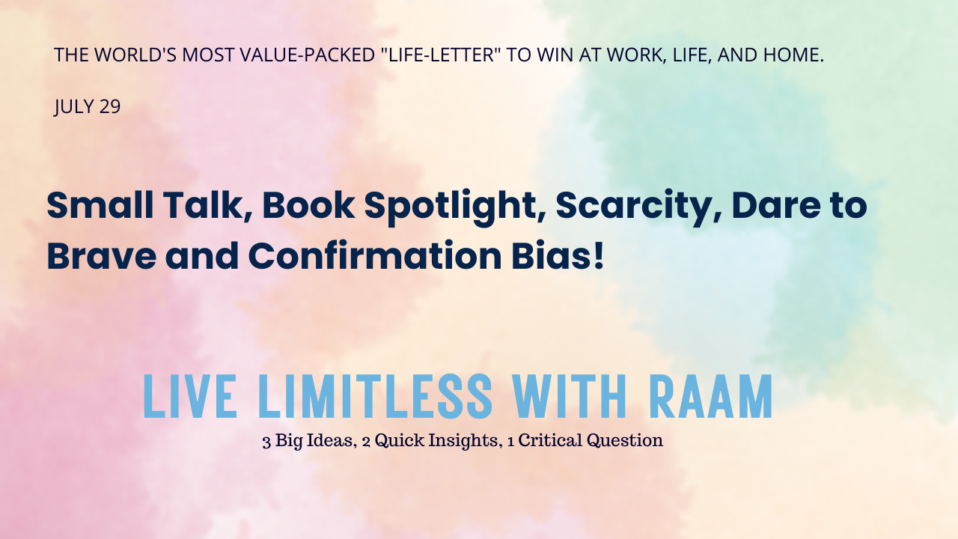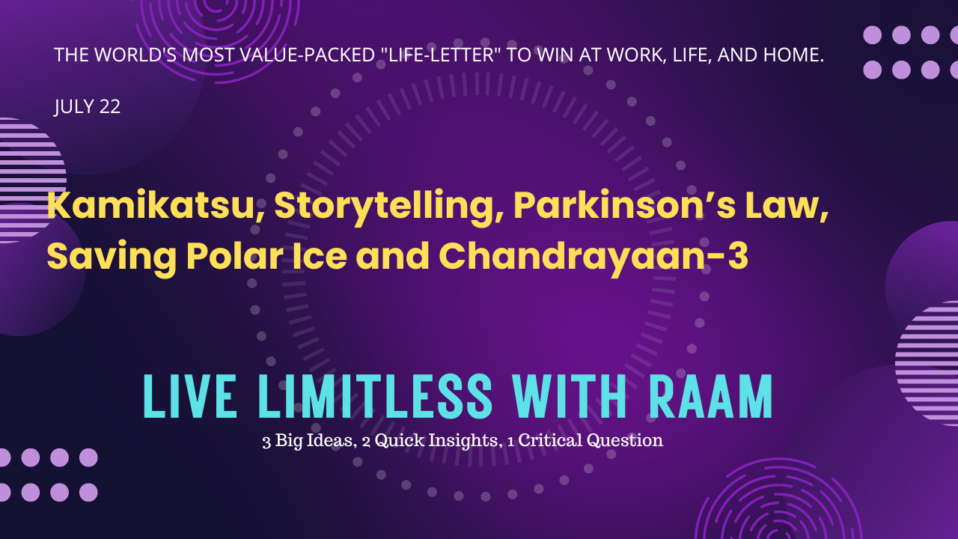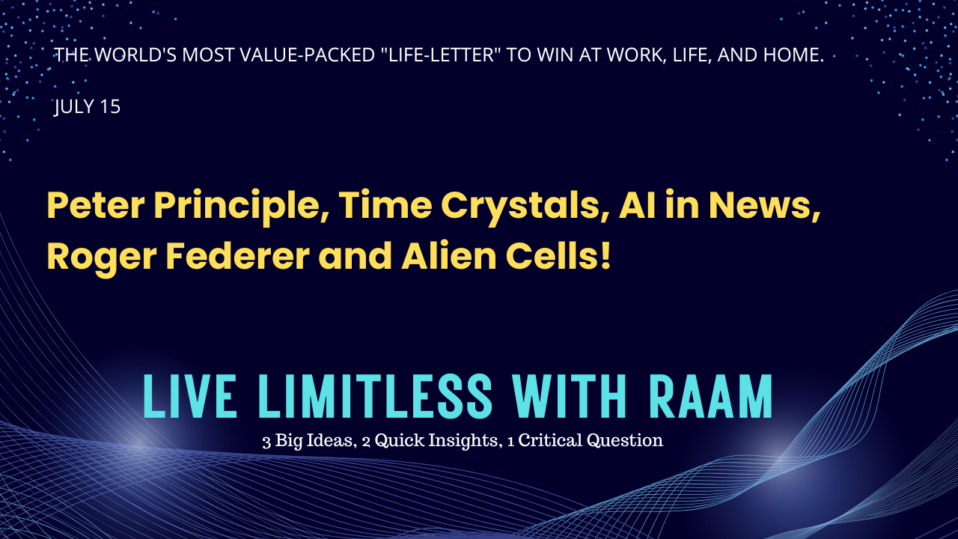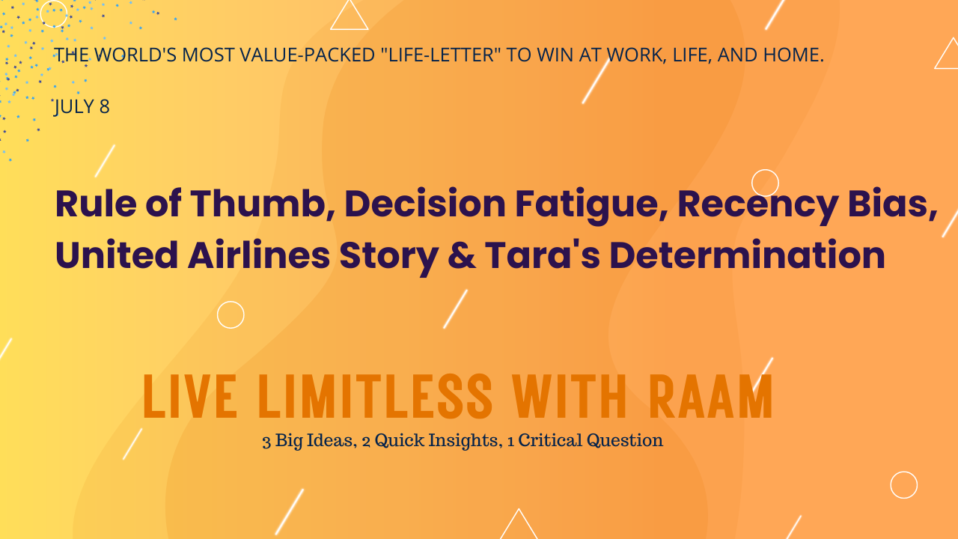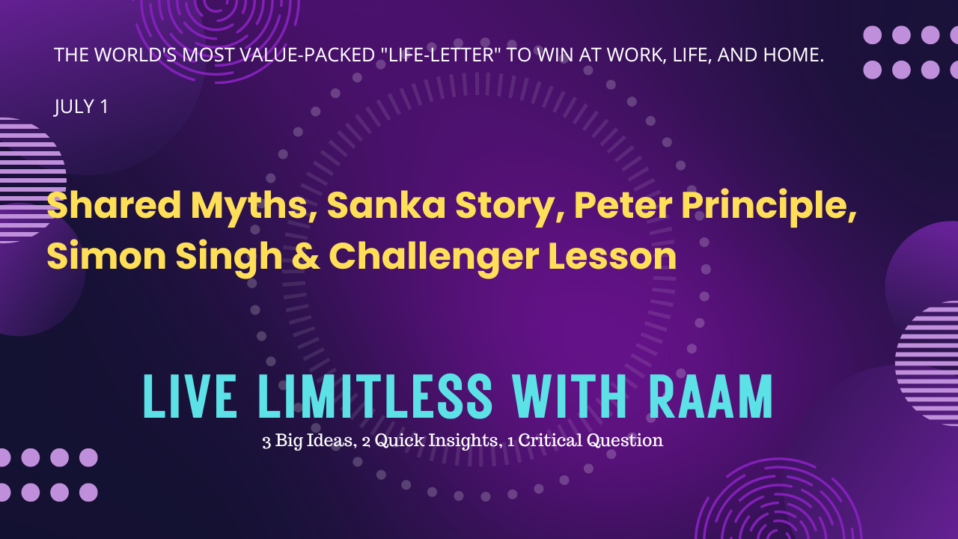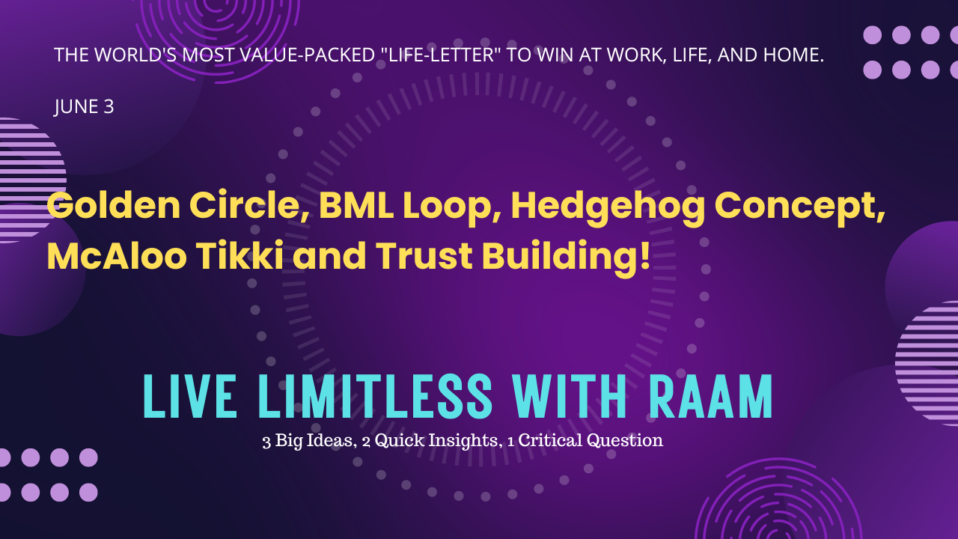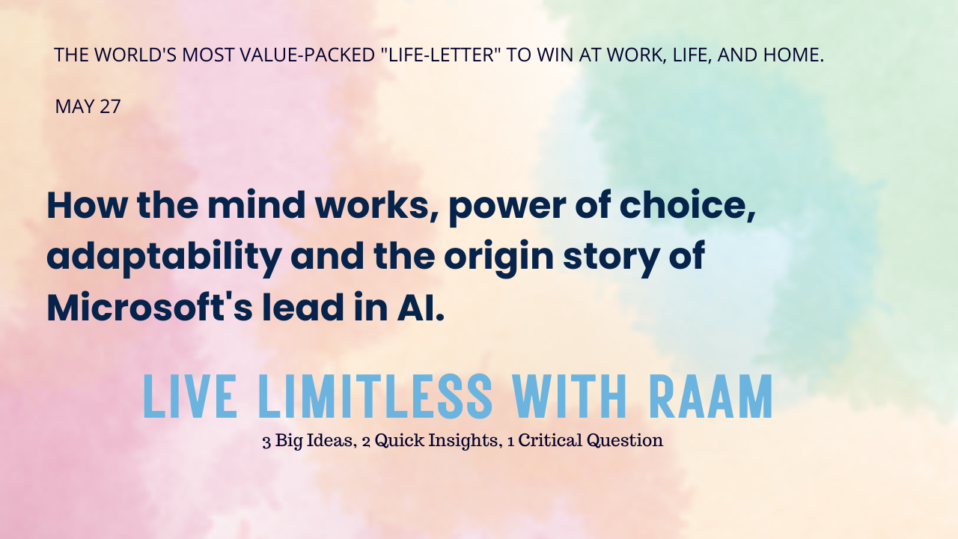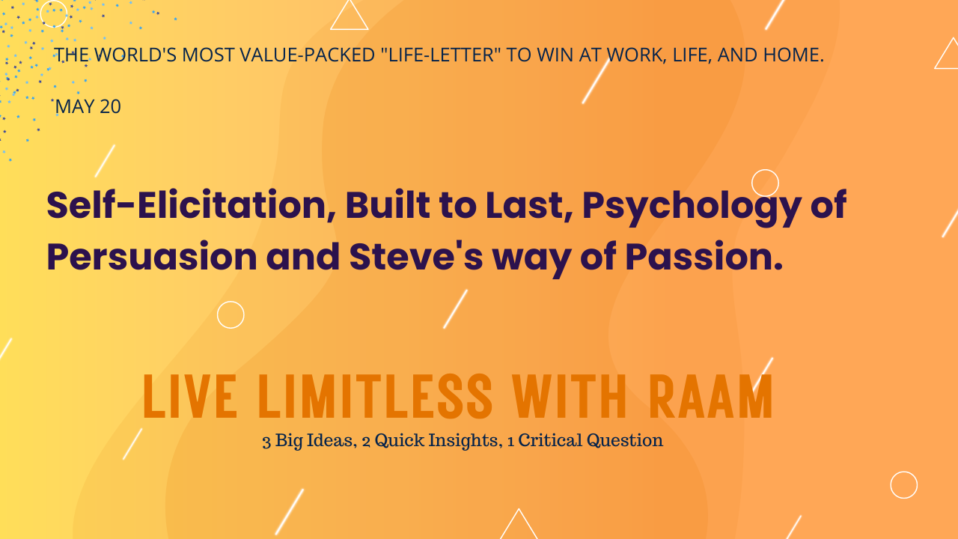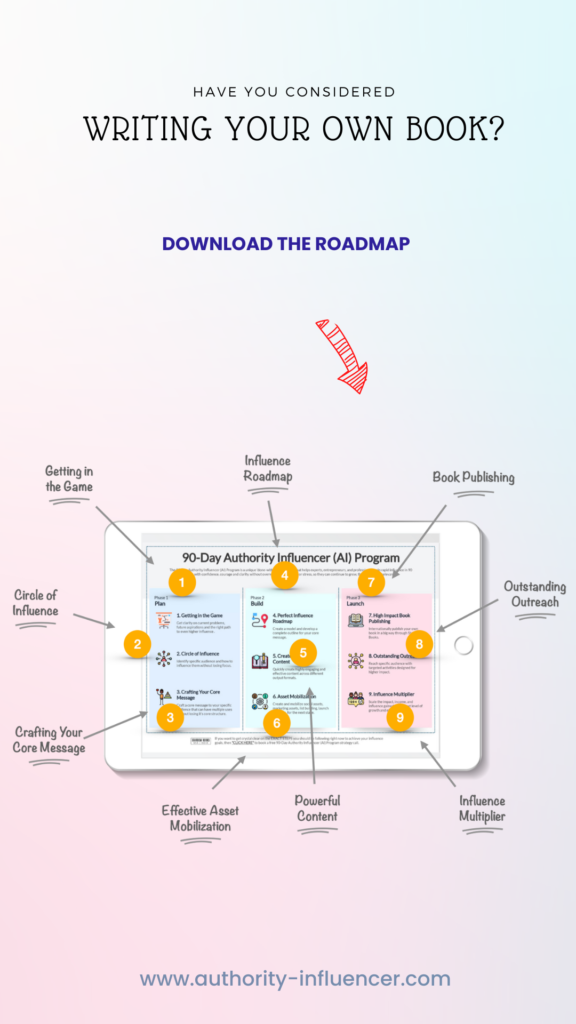Live Limitless with Raam
“The World’s Most Value-packed Newsletter Life-letter to WIN at Work, Life, and Home” with:
3 big ideas, tips or strategies
2 stories, quotes or case-studies
1 critical question to ask yourself
Live Limitless: Try F.D.B, Optimization, Creating Useful Posts, Scarcity, & Job Advice!
read on LIFELETTER.RAAMANAND.COM | AUGUST 5, 2023
In this week’s episode, we’re diving into a rich blend of insights and strategies designed to inspire and guide you. From redefining the path of self-development with the Feel -> Do -> Be method to exploring the fascinating shift from scarcity to abundance in our world, we’ve got you covered. Whether you’re an entrepreneur seeking your next big idea or simply looking for ways to optimize your social media content and personal finances, there’s something here to spark your curiosity and fuel your growth. Join us as we explore these ideas and more, all tailored to empower you in your journey. Read on…
____________
3 Big Ideas, Tips or Strategies for this week
1. Try F.D.B.
Instead of Be -> Do -> Have (rat race)… try Feel -> Do -> Be.
How do you want to feel? Start feeling that feeling (imagination)
What can you “do” in order to have that feeling in reality? (action/strategy)
Who are you going to “be”? (identity)
Source: A seminar from 2013.
2. Start now. Optimize later.
An imperfect start can always be improved, but obsessing over a perfect plan will never take you anywhere on its own.
Source: James Clear, Atomic Habits
3. One-week’s Social Posts in an hour.
Make a list of 15 questions that people usually ask on your topic (FAQs). Make another list of 15 “Should-Ask-Questions (SAQs)” as well. Answer all 30 questions in text, video or audio formats. Now you have 30 interesting and original social media posts to share instead of copy-pasting someone else’s content or blindly forward other peoples’ messages.
_____________
2 Stories, Quotes, or Case-Studies for this week
1. Nothing is scarce!
Aluminium was once so scarce that in early 1800s Napoleon III threw a banquet for the King of Siam, where the guests were given aluminium utensils while the others had to make do with gold!
The same transformation from scarcity to abundance, from expensive to demonetised, is happening across a wide range of product and services:
- Information has become abundant and free through Google
- Knowledge has become abundant and free through Wikipedia
- Energy is becoming abundant through wind and solar
- Communications has become abundant through mobile networks
- Entertainment has become abundant through YouTube (more than 1 billion hours of free videos were served in 2016)
- Transportation is demonetizing 10x because of electric autonomous cars
This is an important lesson for entrepreneurs. What product or service will you create that can transform to abundance? That’s where the money is.
Source: BOLD by Peter Diamandis
2. Do Not Quit Your Job Until….
Your side income covers twice as much as your monthly expenses. Your emergency fund can cover at least six months of expenses. You are skilled enough to make your side hustle your main business. You are ready to work 12-16 hours a day. You don’t make any excuses. You are determined to work hard to succeed.
Source: Warren Buffet (reportedly)
_____________
1 Critical Question to Ask Yourself
Today’s episode explores rethinking personal development with an innovative approach, embracing imperfection to start now and optimize later, efficiently creating engaging social posts, recognizing the transformation from scarcity to abundance in various aspects of life, and essential steps to consider before quitting a job to pursue a side hustle. Ask yourself, “How can I apply these insights to create abundance and alignment in my personal and professional life?”
Did you like this week’s “Life-letter”? Then, don’t keep this to yourself. Share it with others.
Share this life-letter on Twitter, Facebook, Linkedin, WhatsApp or via email.
Or, copy and paste the link below:
http://lifeletter.raamanand.com
Let’s meet again. Until then, Keep Smiling… Believe in Yourself… and Get all the Best Things in Life,
Raam Anand
Publishing Coach to hundreds of first-time authors around the world
Publisher & Chief Editor at Stardom Books (USA/India)
Author of the International Bestseller, Write Now
